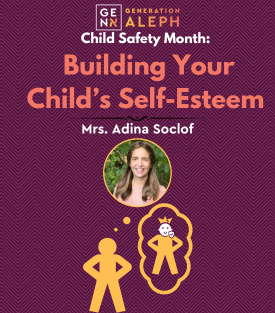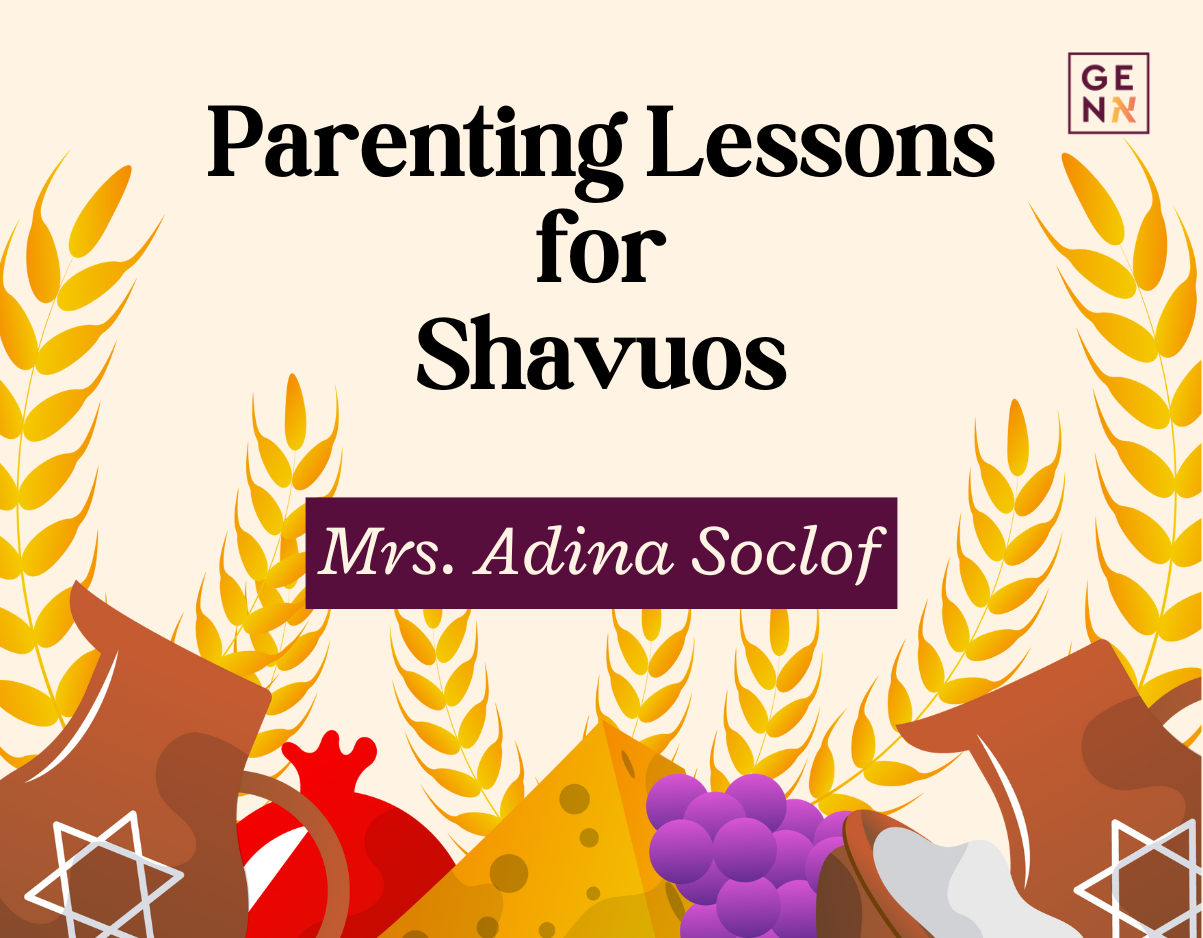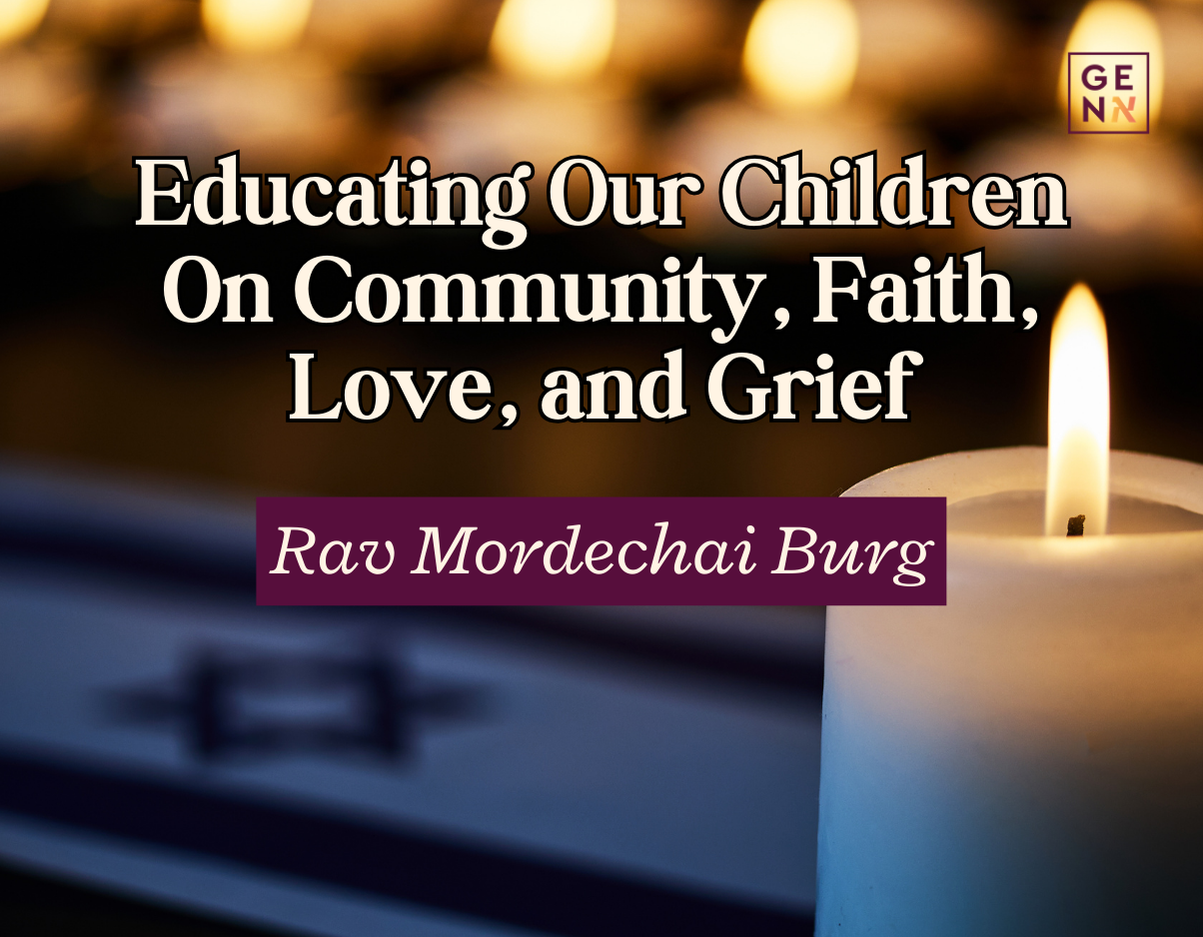Nothing is particularly new about women serving as breadwinners. The Mishna (Kesubos 59b) considered it incumbent upon active homemakers to contribute to the family income in order to avoid the spousal tension bred by his earning money and her spending it. The Mishna also recognized that even absent economic pressures, it is important for women to use their talents productively.[1] While the Mishna’s version of “women working” meant spinning wool at home, the considerations addressed by the Mishna remain completely relevant, even as they present differently today.
My parents both worked and were involved parents, yet they had a very clear sense of their respective roles. My mother, whose work was driven partially by economic necessity but even more so by her desire to use her natural gifts productively, was first and foremost the akeres habayis, the active and present mainstay of our home. By contrast, my father, a congregational Rabbi, defined himself by his work outside the home. This work was not only a fulfillment of his desire to use his gifts to serve the community, but also a fulfillment of what he saw as a basic responsibility of fatherhood: supporting his family. Their approach worked well and demonstrated that mothers can work outside the home and raise wonderful families if they and their husbands “get it right.”
But it appears to me – as a parent, as a teacher, and as a communal Rav – that too many families are not getting it right. The classic values that informed our parents’ approach have gone by the wayside, with very serious implications for our families. Today, fathers often do not assume the responsibility of being the ultimate provider and mothers are frequently less focused on their critical role in the home. And I believe we are paying a very steep price for this – in terms of the health of our families and in the proper development of our children.
Some suggest that these challenges mandate a radical rethinking of communal approaches. Perhaps the yeshiva world needs to reconsider the broad promotion of kollel life and the modern Orthodox world needs to revisit its broad encouragement of women’s pursuit of careers as a central source of self-fulfillment. While this may be beneficial, I don’t think we can expect immediate, radical change.
Instead, I would like to propose ways that we can effectively restore these classic values to their rightful place. Accomplishing this alone would constitute a huge step forward.
Motherhood and Engaged Parenting
A widely-discussed study conducted by the National Center on Addiction and Substance Abuse at Columbia University[2] concluded that the parental undertaking most effective at reducing the risk of children pursuing inappropriate behaviors, such as alcoholism and substance abuse, is the family dinner. This reflects what many of us observe – that children provided with the presence and the attention of engaged parents absorb their values and almost invariably enjoy a greater sense of security, confidence and self-worth.
While both parents share the responsibility of providing children with a sense of security and self-confidence, this role is the mother’s primary task (ביתו זו אשתו)[3]. The same mother who was granted by G-d the unique physical capacity to carry, protect and nurture the child through infancy, was also granted the unique emotional capacity to protect and nurture the child into adulthood. In fact, the husband needs his wife’s support and care as well, since his involvement in the competitive and confusing world outside the home tends to leave him vulnerable and distracted. It is essential to have a secure home to return to, where he is appreciated and supported and where he can reconnect to the core values of the family. And the challenge of creating such a nurturing and wholesome home environment has grown increasingly daunting for a number of reasons:
- In today’s hi-tech, hi-connectivity world that boasts of universities, stores, schools and synagogues without walls, the walls of our homes have grown increasingly porous, penetrated by both personal and mass communications to the point where it is increasingly difficult for parents to define their own home environment.
- Parents of larger families face greater difficulty in devoting the necessary attention to each of their children such that he or she will not have to struggle or compete for it.
- When economic demands or career responsibilities draw mothers into the world outside the home, it increases the difficulty of creating the proper home environment. The demands on a mother’s time and attention affect her ability to be both physically and emotionally present for her family.
To properly address these challenges, the community and its parents, educators and rabbonim need to focus far more attention on the importance of building a solid and secure home life, on parents being there for their children and on spouses being there for each other. Men – young and old – need to be taught about their personal responsibility to support and assist their wives, to participate actively as husbands and fathers in the home, and to enhance their appreciation of the irreplaceable role their wives play within the home. Young women’s high schools and seminaries from right to left should invest more time, energy and resources on educating and imbuing their students with an understanding and an appreciation of their students’ eventual critical role as engaged wives and mothers, alongside whatever other aspirations they encourage. In this framework young women will be better equipped to make their life choices balancing Torah and career aspirations with the incorporation of a primary and irreplaceable role within the home.
This educational process and restatement of communal values should include sustained discussion of specific, achievable and practical matters including the following:
- Identifying careers and work schedules that allow mothers to be present when children leave to and return from school
- Weekday family dinners
- Husbands considering establishing their learning seder or working overtime early in the morning to allow for more evenings at home
- Seriously limiting personal and work-related telephone calls and smartphone use while at home with the family
- Limiting teens’ connectivity to enhance their being in touch with the lessons and messages of the home; and
- Using Shabbos as a time to strengthen home and family, rather than for limitless programming and social opportunities.
Fatherhood and Responsibility
The Rambam (Hilchos De’os 6:10) provides an invaluable description – in the form of a negative definition – of the role of a husband and father. He writes that the halachic category of an orphan (towards whom we must act with extra sensitivity) applies to orphaned children until they reach the age at which “they do not need an adult to rely on, to raise them and to take care of them.” As the Torah consistently groups together the widow and the orphan, it seems fair to say that both as a husband and as a father, a man’s role is to be reliable and responsible – a source of strength and material security to his wife and children. Yet I see too many of our young men insufficiently prepared to assume that role. Why is that?
A prerequisite to being a source of support and security to others is to first establish one’s own sense of personal responsibility and independence. These are values that are being encouraged neither in the world at large nor in our religious society. Rather, we seem to be carrying the next generation as financial, emotional and spiritual dependents.
Well-meaning parents, for example, freely provide their children with everything they themselves never had. And in the religious realm, the average young man or woman studying in a yeshiva or day school is not making a conscious decision to “choose life,” but is simply following the path of least resistance. This does not bode well for them as individuals, nor does it provide them with the necessary experience and character to position them as providers and supporters for their own families. A resultant phenomenon is an increasing number of failed marriages because of couples’ unwillingness or inability to work through the inevitable challenges confronting a developing relationship.
While this over-dependence is a concern all around, given man’s role as the provider and the one upon whom his wife and children are to rely, it would seem exceptionally important to provide young men with specific direction in this area.
I would suggest that certain specific practical adjustments are in order:
- Across the spectrum of the observant Jewish community, young people should be given the chance to start out with less reliance on parental support.
- Even when parents provide for their children, they can build their children’s sense of responsibility by the manner in which their support is provided. Instead of credit cards and late model cars, children can be given a fair but limited budget and can be taught to do without the so-called finer things they may see their parents enjoying, and learn thereby that such luxuries are the rewards of one’s own hard work.
- All those involved with young people should stimulate their sense of responsibility by giving them spiritual or material responsibilities, within the family, school or community.
- Educationally, the community and its parents, educators and rabbonim should focus far more attention on the importance of self-sufficiency, personal responsibility and leadership as core values and as critical factors in decision-making, be it regarding education, career, lifestyle or family. Thus, for example, sustained emphasis can be placed on the aforementioned values of living within one’s means and of limiting financial dependence on parents, government programs and others.
- Students should be encouraged to formulate personal ambitions and to set goals beyond simply going with the flow of communal expectations.
- Individuals should identify how they can contribute meaningfully to the betterment of others.
Separate and apart from the financial realm, an excellent illustration of the encouragement of a mindset of personal responsibility can be found in a system established by the father of the yeshivos, Rav Chaim of Volozhin, zt”l. Even as Rav Chaim created the framework to significantly expand the population of older yeshiva students, he imbued them with a sense of mission in their studies, that through their Torah learning they were actually sustaining the entire world. Thus, Rav Chaim established a schedule whereupon Torah was being studied by some students of the yeshiva during every single hour of the day, so that they would “keep the world going.” They thereby understood that they were not escaping the world to study for themselves, but that they were actively engaged in the world’s most vital activity.[4]
In more recent times, Rav Moshe Feinstein, zt”l, encouraged Yeshiva students to tithe their time, dedicating part of their day to helping weaker students.[5] The Klausenberger Rebbe, zt”l, in a program expanded recently through the Dirshu movement, instructed his followers to set specific goals for themselves in their studies, and created a system of tests and degrees (Chaver, Moreinu) that would encourage meeting those goals. Others more focused on in-depth learning encouraged their students to produce written summaries of their learning and novella – Chiddushei Torah. And Rav Aaron Kotler, zt”l, in an address at the founding of the Philadelphia Yeshiva, spoke of the task of the yeshiva students becoming role models for the world around them in their outstanding dedication to Torah.[6]
One way or another, it seems that these leaders understood that Torah study will produce a student of stature specifically when the student studies in a framework that encourages his personal productivity and responsibility. We must seek similar approaches in order to create more fully developed and responsible young men.
It seems clear, however, that in addition to identifying areas of broader responsibility and impact, young men must address their more immediate personal responsibilities. In Torah-only yeshivos that do not include a career track, young men should be encouraged – by their Yeshiva and by their parents – to discuss how they intend to support their families. They need to take seriously the language of the Kesuba marriage contract in which they commit to “serve, honor, feed and support their wives, as is the loyal custom of Jewish men.” It must be made clear that it is not the responsibility of their parents’ or in-laws’ to support them, and that if their idealistic bride wishes to follow the path of the wife of the sainted Chafetz Chaim and manage the store so that her husband can study, she will not be fulfilling her own responsibilities but rather she will graciously be doing her husband’s job for him.
Summary and Conclusion
Shifts in bread-winning responsibilities do not account on their own for the recent negative trends in family life and structure. The greater issue is the neglect of certain core values. As such, much can be accomplished by restoring these important values as part of our children’s education, and our familial and communal mindset. Specifically, we must cultivate a heightened awareness of the integral value of a strong home life, and of the indispensable role of engaged parents – especially wives and mothers – in creating that home. Likewise, as a community and as individuals, we must build character, and specifically the character of our young men, to celebrate the values of independence and self-sufficiency, and to cultivate a sense of responsibility for themselves and others.
I will conclude by sharing a letter that expresses these values simply.
Our Dear Son, עמו”ש,
Mazel tov on your engagement! We are so pleased and happy. We want you to know that as you build your home and family, we will be there for you in any way we possibly can. We have limited resources but we have an unlimited desire to be there for you.
We are extremely proud of your commitment to the study of Torah. Torah is our life – כי הם חיינו – and your engagement in learning and living Torah will fundamentally uplift every aspect of your family life, now and, bez”h, forever.
We have only one request of you. Please tell your kallah every chance you get that you value first and foremost her role as your wife and as the mother of your children. Tell her that you view her as your בית, as the one who is tasked with making your home a place of security, tranquility and purity for you and for your children. Tell her that you – as the man of the house – are the one responsible for going out and providing for the family, and that if she wishes to help in that realm you will appreciate it and accept it only to the extent that it does not materially detract or distract from her main task as the עקרת הבית, as the anchor and mainstay of your home and family.
This is a tried and true formula. Our fathers conveyed this message to our mothers, and we have lived our lives in the same way. We are very happy with the results. בעז”ה you will be too.
Mazel tov. We love you.
אבא ואמא
I would like to thank מו”ר Harav Yaakov Hopfer, שליט”א, Rav of Congregation Shearith Israel in Baltimore, Maryland, for his support and guidance in preparing this article.
Submit your questions
"*" indicates required fields











